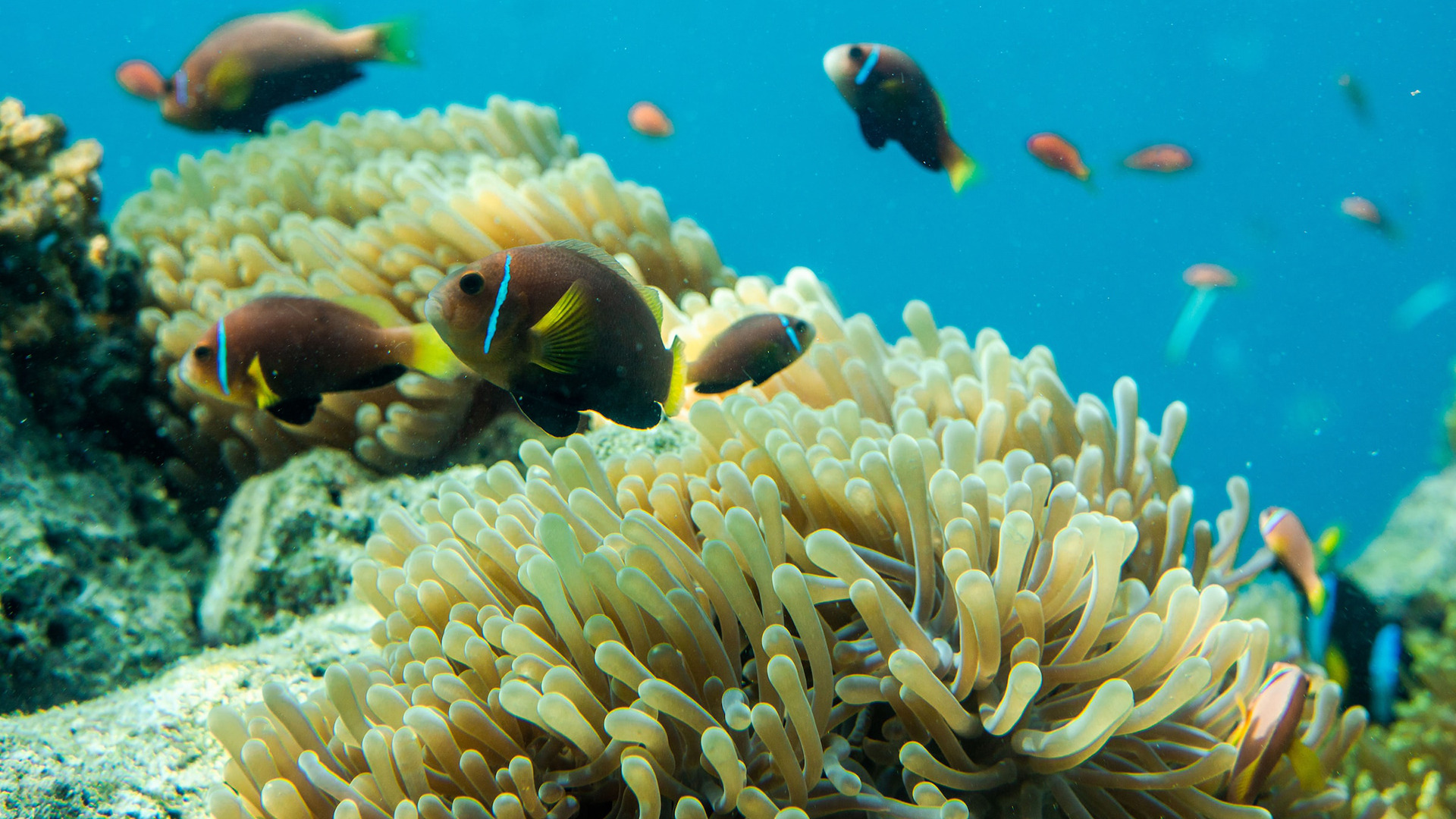
Fisheries sustainability on coral reefs (ClimateREEFS)
Introduction
The livelihoods and food security of 1 billion people who depend directly on coral reef ecosystems are at risk from climate change. ClimateREEFS will advance knowledge and impact towards identifying socially equitable climate change adaptation pathways for coastal communities in Indonesia and the Philippines that depend on coral reef resources. The project will implement social research to identify social climate vulnerability and inclusive adaptation pathways through a gender and social equity lens, geospatial research to detect adaptive reefs from satellite-derived data, and ecological and genomic research to pilot an analysis that tests the interplay of adaptiveness from genes to people.
Context
More frequent marine heatwaves cause widespread coral die-offs and associated declines of ecosystem services, threatening biodiversity conservation and sustainable fisheries. This threat creates an urgent need to identify and support climate-adaptable reefs and communities, and understanding drivers of adaptability. There is an urgent need to measure and operationalise adaptation in reef management, encompassing genetically imbued thermal resistance of organisms, variability in thermal regimes, and socio-economic resilience of communities. Currently, management strategies mostly target reefs less exposed to thermal stress but ignore biological and socio-economic adaptation. This project aims to develop evidence-based effective adaptation strategies that are socially equitable. In Indonesia and the Philippines, two countries with large coastal communities, it will identify “adaptive” reefs from space, quantify how reef geomorphology and thermal regime predict biodiversity and its adaptive capacity (i.e., genomic diversity), and characterise the socio-economic vulnerabilities of different stakeholders, particularly women and marginalised groups.
Approach and Methods
The approach and methods of this project include training in techniques required for a multi-disciplinary approach that can contribute to scalable solution for the complex challenges. This involves a diversity of methods including: review and synthesis of existing social climate adaptation data/knowledge; climate change vulnerability assessment; and fieldwork with collection of genomic samples, visual census surveys, eDNA sampling, and benthic photos. Data analysis includes: genomic analyses, bioinformatics analysis of genomic sequence data; reef complexity/beta-diversity analyses; and adaptive reefs statistical analysis.
The project brings together and empowers project partners and key stakeholders, and aims to deliver pilot science and on-the-ground change.
Expected Results
The expected results of this project include:
- review / synthesis of existing social climate adaptation data/knowledge;
- household survey and social equity and gender aware Climate Change Vulnerability Assessment;
- pilot findings on gender- and social status-specific climate change vulnerability (in both countries);
- genomic data ready to use;
- analysis pipelines (computer codes)
- trained analysts in disciplines involved in the project;
- publication (draft) on whether reef complexity predict adaptive capacity at coral population level;
- publication (draft) on degree to which do different social groups within coastal fishing communities depend on resources from adaptive (vs non-adaptive) reefs.
Expected results are a combination of preparation for a full phase project, capacity building and specific research outputs.
In the first months of the project, it will establish project strategies and management that will allow potential expansion in future years. Simultaneously, it will build links to regional activities and stakeholders, establish a network of multidisciplinary social science, Gender Equality and Social Inclusion, and policy experts, and create on-live visibility/outreach.

